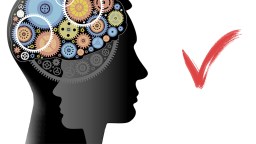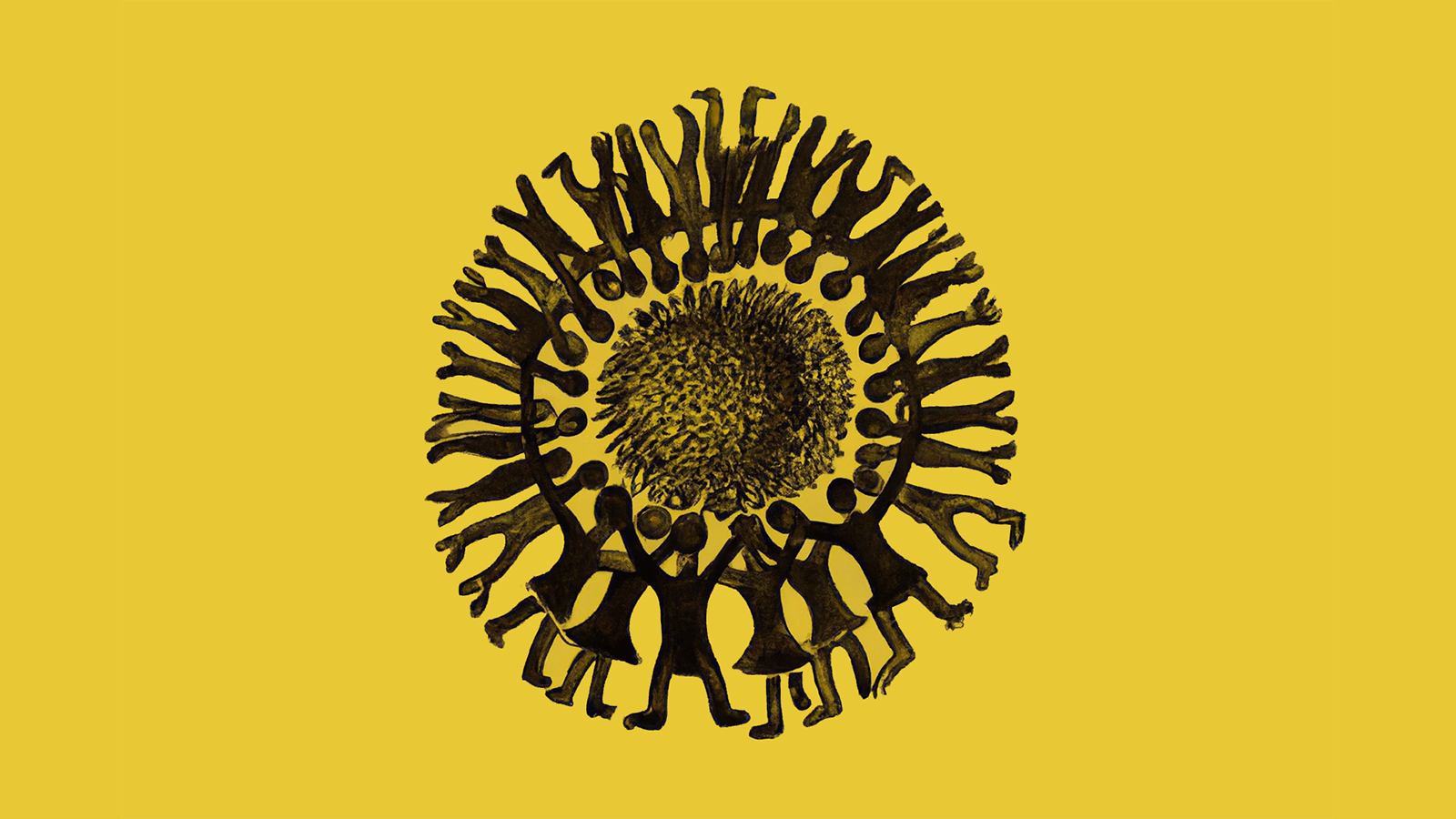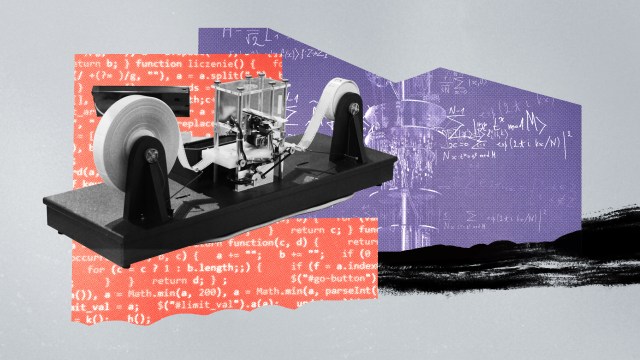Why do high IQ people stagnate in their careers? Emotional intelligence

- Popular perception is that raw intelligence makes people successful or not.
- But research suggests that emotional intelligence may be what differentiates star performers.
- You can cultivate your emotional intelligence, but you’ll need self-efficacy to do so.
Albert Einstein, Steve Jobs, Ludwig van Beethoven, John Rockefeller, Ada Lovelace, and Neil deGrasse Tyson. What do these people have in common? They were all incredibly successful in their respective fields, and they are all personalities who have had the label “genius” attached to them. The lesson learned from their examples is evident: Success and intelligence go hand-in-hand.
And there is some truth to that. Intelligence as measured by an IQ test — that is, general intelligence — does correlate with beneficial life outcomes, such as educational attainment and life expectancy.
Let loose into the wilds of our cultural consciousness, however, this research has morphed into the false assumption that IQ is the end-all-be-all of intelligence. It’s not. General intelligence is not synonymous with “absolute intelligence”; rather, it’s an assessment of skills within a set of specific cognitive domains (perceptual reasoning, verbal comprehension, etc.). As Jonny Thomson writes for Big Think:
“The trouble occurs when people misunderstand this point. They assume IQ represents raw ‘brain power.’ Worse, some people equate IQ with worth. Employers, especially, might write off a person based on a low IQ. Doing so fails to appreciate that many employees can offer skills and abilities that lie beyond the scope of IQ tests.”
In fact, despite popular perception, IQ may not even be the differentiating ability between star performers and everyone else. That difference may be found in another form of intelligence: emotional intelligence.
Working with emotional intelligence
Emotional intelligence has precursors dating as far back as the 1930s. Psychologist Abraham Maslow introduced a similar idea with his concept of emotional strength, and psychologist Howard Gardner included both inter- and intrapersonal intelligences in his theory of multiple intelligences. But it was psychologist and science journalist Daniel Goleman who propelled emotional intelligence to the mainstream with 1995 bestselling book titled — you guessed it! — Emotional Intelligence.
Goleman’s model was based on the work of psychologists Peter Salovey and John Mayer, and in a follow-up book, 1998’s Working with Emotional Intelligence, he defined emotional intelligence broadly as “the capacity for recognizing our own feelings and those of others, for motivating ourselves, and for managing emotions well in ourselves and in our relationships.”
He further argues that general intelligence and emotional intelligence are distinct, and while culture perceives intelligence to be the standout variable of success, that perception leads us to undervalue emotional intelligence’s vital role at work and in life. “Many people who are book smart but lack emotional intelligence end up working for people who have lower IQs than they but who excel in emotional intelligence skills,” Goleman wrote.
In an interview with Big Think, Goleman shared a study to explain why that might be. In it, researchers asked software engineers to evaluate their peers on how successful they were at what they do. Those evaluations were then compared to the engineers’ IQ and emotional intelligence scores. To Goleman’s surprise, intelligence didn’t correlate with success (as rated by peers), but emotional intelligence correlated highly.
In another study, this one referenced in Working with Emotional Intelligence, researchers analyzed competence studies across 286 organizations. Two-thirds of the organizations were found in the U.S. and the other third abroad. Of the 21 competencies the researchers identified for top performers, 18 were related to emotional intelligence. The remaining ones were analytic skills, conceptual thinking, and technical expertise.
“In other words, the vast majority — more than 80 percent — of general competencies that set apart superior from average performers depend on emotional intelligence,” Goleman wrote.
Why would that be? As Goleman explained in his interview, for any given role, there will be an IQ floor. If you become a professional software engineer, you will likely have an above average IQ. Otherwise, you won’t have developed the skills and expertise necessary to get the job in the first place.
However, the same can be said of all the other engineers you work with. Intelligence will no longer be the factor that sets you apart. Conversely, emotional intelligence can help you build the relationships necessary for collaboration and moderate your emotional responses in trying times.
“You don’t write code in isolation anymore,” Goleman said. “Everyone works on projects together… You have to coordinate, you have to influence, you have to persuade, you have to be a good team member.”
“So when you think about it that way, it makes sense that even among engineers, emotional intelligence will predict who is a star and who is just mediocre.”

An ability (or trait) by any other name?
Meta-analyses have further suggested that emotional intelligence correlates with health, job satisfaction, performance in school, and life satisfaction. All in all, there is evidence to suggest that emotional intelligence exists, that it is distinct from general intelligence, and that it correlates with a bevy of benefits.
There are, however, two important caveats: First, researchers still don’t know exactly what emotional intelligence is, and second, their means of measuring it come with drawbacks.
Let’s start with the first. Emotional intelligence is generally seen in one of two ways: either as a trait or an ability. Trait emotional intelligence measures a person’s capacity for things like well-being, self-control, and sociability through questionnaires. Meanwhile, ability emotional intelligence considers people’s skill at perceiving emotional cues and then acting upon them accordingly.
Models mixing the two also exist. Goleman’s definition, for example, could be considered a mixed model as it looks at a wide range of competencies and skills. For the record, his five emotional intelligence pillars are:
- Self-awareness: Knowing how you are feeling and having a realistic assessment of your abilities.
- Self-regulation: Using your emotions to facilitate a task rather than interfering with it.
- Motivation: Using your preferences to guide you toward your goals and overcome setbacks.
- Empathy: Sensing what others feel and seeing things from their perspective.
- Social skills: Managing relationships to increase cooperation and resolve disputes.
The problem is that researchers aren’t sure if trait and ability emotional intelligences are two sides of the same cognitive coin or if they are two distinct operations. Some studies suggest the two don’t even correlate with each other, and tests designed to assess trait emotional intelligence correlate more strongly with standard personality models.
Onto the second point: Each model has weaknesses in how it is measured. Trait emotional intelligence is scored using questionnaires, either self-reported or peer-reported. Unfortunately, even self-reported questionnaires designed to weed out intentional deception may fall prey to self-deception. After all, if you lack self-awareness, how would you be able to adequately measure your own emotional intelligence?
Similarly, peer-reported questionnaires can be tainted by office politics in which employees may fear giving the boss a bad review or will agree to grade each other well. Even with anonymous surveys, there’s always the worry that they may not be as anonymous as advertised.
“Organizational politics can make it particularly difficult for executives in the topmost tiers to get candid evaluations,” Goldeman writes. “Executives tend to be insulated from evidence… because they are isolated, partly because subordinates fear offending them.”
Tests for ability emotional intelligence try to iron out this subjectivity by using problem-based assessments. Think IQ questions for emotions; for example, showing a picture of a person’s face and asking what they are feeling, or describing a social situation and asking for the best course of action.
While this does remove the problems of self-reporting, it still has the issue that emotional and relational problems don’t come with pat solutions. Does a person’s deep, disconnected stare mean they are angry, worried, pensive, or contemplative? It could be either or a complex mixture of many emotions. And social strategies may vary greatly depending on the goals, people involved, and the environment we find ourselves in.
Unlike a math or logic problem, there is not always a correct answer to emotional and social problems.
Can you cultivate your emotional intelligence?
The above nuances aren’t to suggest that emotional intelligence is a fad or unsubstantiated. However, until the research has matured and psychologists have a better grasp of what emotional intelligence is, it can be difficult to determine how one can cultivate and develop it.
If emotional intelligence is an ability, it could be as simple a matter as practice makes perfect. If emotional intelligence is more in line with a personality trait, then change would require altering not only how you think and behave but also your self-perception. That is a taller order for sure, but research suggests it is possible.
With all that said, I do believe one can foster emotional intelligence along the lines of Goleman’s five main pillars. If you’re looking to make such a change, here are a few ideas to get you started.
Self-awareness
One way to cultivate self-awareness is simply to create space for it in your day. That may include journaling, a mindfulness practice, or simply finding the time to sit with your thoughts and ask questions of yourself. To help you shine a light on your blind spots, ask trusted friends and loved ones for their honest opinion on matters where you may hold biases.
Self-regulation
Self-awareness can further improve your self-regulation by helping you name your emotions, identify your triggers, and develop strategies to manage both more effectively. If your emotions begin to interfere with your work, it can help to talk to yourself.
Self-compassion can boost your morale and help you see that your problems aren’t always due to character flaws. Often, they are part and parcel of the struggles of life that we all experience.
Motivation
If you find yourself lacking motivation — say you’re bored at work — that’s your emotional state sending you a warning that you’ve become disconnected from your goals. This makes you more likely to encounter and succumb to setbacks. Use that warning to begin seeking out ways to be more in line with your preferences and life goals.
“We need to be engaged, mentally occupied, giving expression to our desires and exercising our skills and talents. In short, we have a need for agency. When this need is fulfilled, we flourish. When this need is thwarted, we feel bored, disengaged,” psychologists James Danckert and John D. Eastwood Eastwood wrote in their book, Out of My Skull: The Psychology of Boredom.
Empathy
One way to deepen your empathy is through what Robert Waldinger, director of the Harvard Study of Adult Development, calls “radical curiosity.” The practice only requires that you ask people about themselves, listen to what they have to say, and be genuinely interested in learning about them. The result is a greater appreciation of that person, their struggles, and their perspectives.
Research also suggests that reading fiction builds empathy. When you read fiction, your brain lights up as though you are sharing the experience of the characters on the page.
Social skills
Social skills, in terms of cooperation and dispute resolution, are built on the previous four pillars. Through radical curiosity, you can learn about coworkers and find new ways to engage in cooperation, while self-regulation and self-awareness can give you the internal tools to maintain your composure in dispute resolution.
Finally, the key to strengthening all of these pillars is self-efficacy — the belief in yourself and your capacity for change and accomplishment. Without it, you cannot move forward, so make self-belief the first step in your emotional intelligence journey.
Learn more on Big Think+
With a diverse library of lessons from the world’s biggest thinkers, Big Think+ helps businesses get smarter, faster. To access Daniel Goleman’s lessons for your organization, request a demo.





